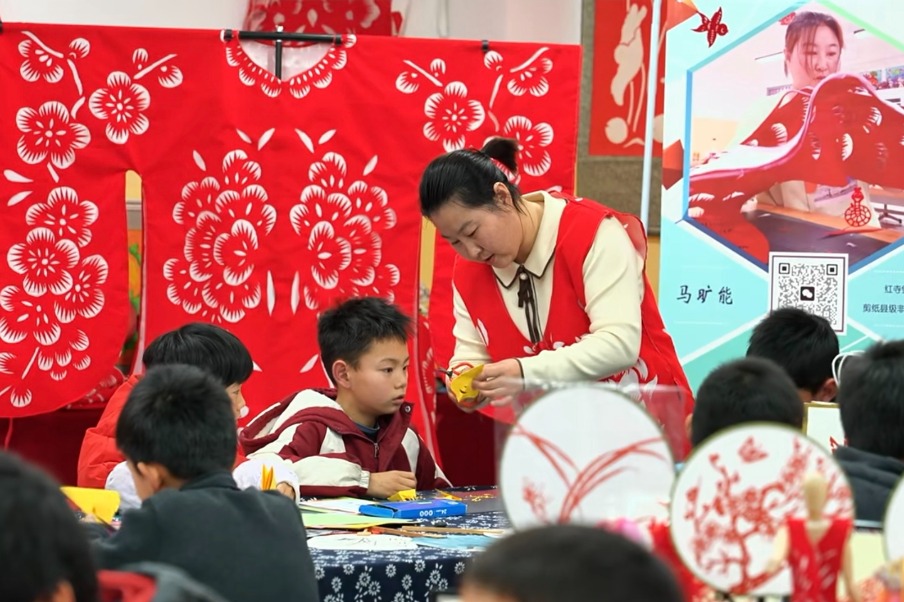Chengdu symposium aims to curb childhood obesity

Cities must put children's health first and reverse the trend of childhood obesity by stemming offerings of unhealthy food, according to a symposium on urban food environments held in Chengdu, Sichuan province, last month.
With the theme of "Co-creating Urban Food Solutions for Future Residents", the Healthy Food City Symposium was jointly hosted by the China National Center for Food Safety Risk Assessment, the Chinese Nutrition Society and UNICEF China. It brought together representatives from national and city governments, renowned nutrition experts from around the world and youth from Chengdu.
Children and adolescents are growing up in environments with an abundance of ultra-processed food and beverages that are rich in fat, sugar and salt. These unhealthy options have contributed to an increase of children becoming either overweight or obese because they are bombarded with food advertising and marketing.
In China, one out of five children age 6 to 17 is overweight or obese, according to the Report on Nutrition and Chronic Diseases of Chinese Residents released by the National Health Commission in December 2020.
"Every child has the right to access the diverse and healthy diets they need to grow and thrive. However, children and families are up against a flood of unhealthy food wherever they go, online or offline. It's our shared responsibility to protect children and create a food environment with healthy food options that are safe, available, affordable and appealing, and we need to act now," said UNICEF China Deputy Representative Amanda Bissex.
Zeng Xiheng, an 18-year-old student from Chengdu, told participants at the symposium, "We hope the government will take measures to make our food environment healthier, and let us know what kinds of foods are genuinely healthy."
Hu Qingyuan, a 20-year-old student from Chengdu, shared key findings from UNICEF China's "Fix My Food" youth consultations, which involved over 60 people age 15 to 24 from Beijing and Chengdu. Results of an online survey that reached a wider audience of nearly 1,300 young people across China were also presented ahead of the symposium.
According to survey respondents, shopping malls, supermarkets and restaurants are providing the least healthy food, compared with offerings at schools and in homes.
Short-video, social media and e-commerce platforms are the top three providers of food advertisements for young people, and flavor, price and nutritional value are the three things they think about most when choosing food. "Fix My Food" is an initiative co-created by UNICEF and young people to raise awareness of the need to create healthier food environments in East Asia and the Pacific regions.
"The prevention of obesity is a universal challenge. There is more we need to do, and we need comprehensive strategies involving all stakeholders. Moving forward, we will work closely with relevant departments and make concerted efforts to meet children's needs for nutrition and health," said Tian Jianxin, deputy director general of the Department of Food Safety Standards, Risk Surveillance and Assessment of the National Health Commission, at the symposium.
City government representatives and nutrition experts presented good practices and lessons learned amid their efforts to improve their food environments with policies targeting obesity and measures addressing children's health. Examples came from Chengdu and Shenzhen, Guangdong province, as well as Quezon in the Philippines, London and several cities in the Netherlands.
Chengdu and UNICEF China have pioneered an urban nutrition program designed to enhance childhood nutrition. UNICEF China's support started with a landscape analysis that revealed the city's food environment and the nutritional status of children and identified gaps in interventions and policies. The outcomes contributed to a comprehensive citywide action plan to combat childhood obesity.
UNICEF China is helping the city build supportive environments in schools, homes, restaurants and retail settings so that children's diets can be healthier. The primary objective is to reduce children's exposure to unhealthy food options and steer them toward making informed and healthier choices.
"We are pleased to see the remarkable progress in Chengdu in championing children's health and well-being. UNICEF would like to share Chengdu's experience in China and beyond and scale up the program to more Chinese cities to secure their young residents' access to healthy food," Bissex said.
- Former senior official of Ningxia sentenced to death
- Development program narrows urban-rural gap in Guangdong
- Wuxi Winter Bazaar creates cross-cultural gathering
- Expressway service area featuring a natural hot spring to open soon in Guangdong
- Former Ningxia political advisor sentenced to death for bribery
- Former senior official of Jiangxi expelled from CPC





































